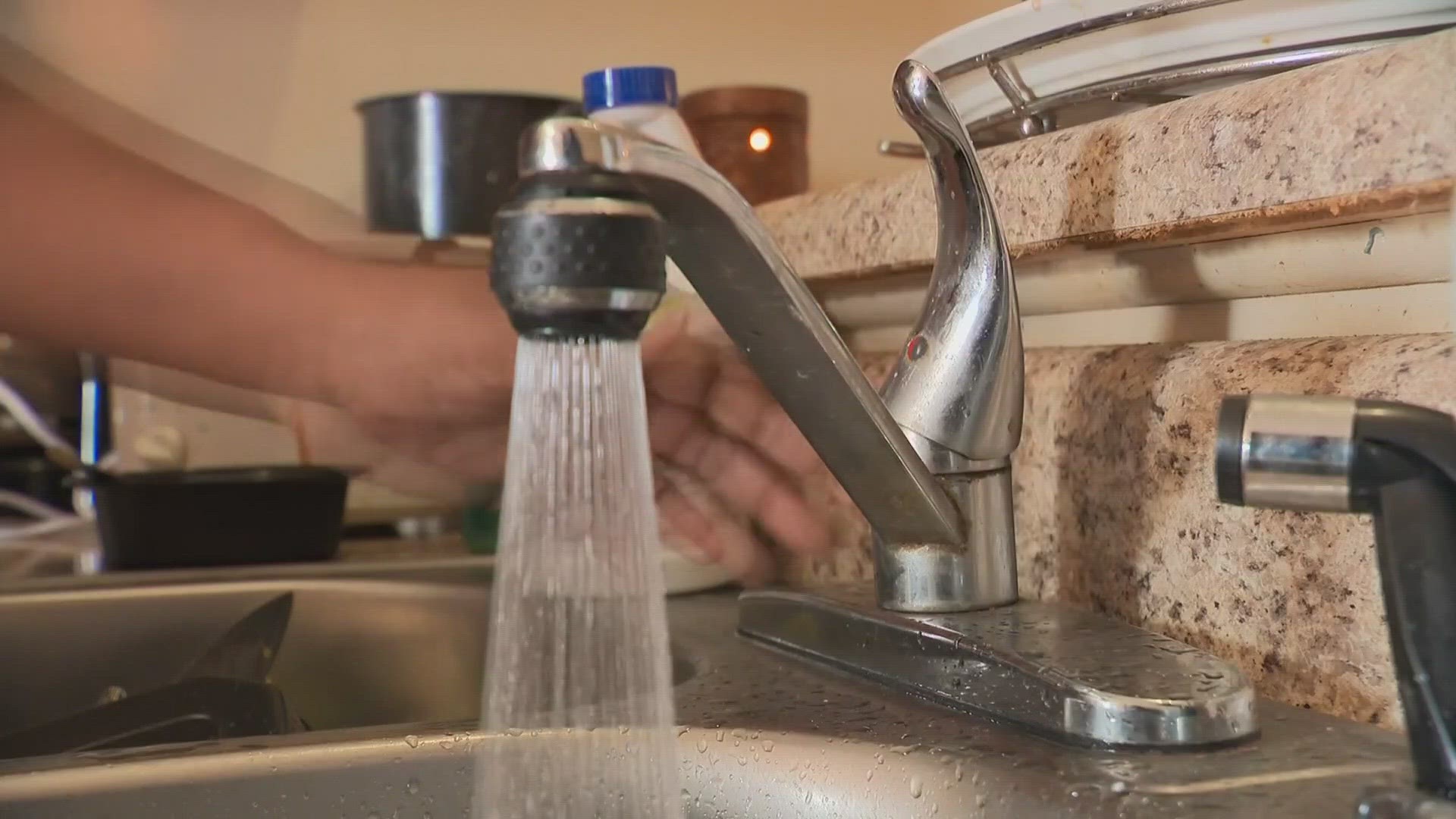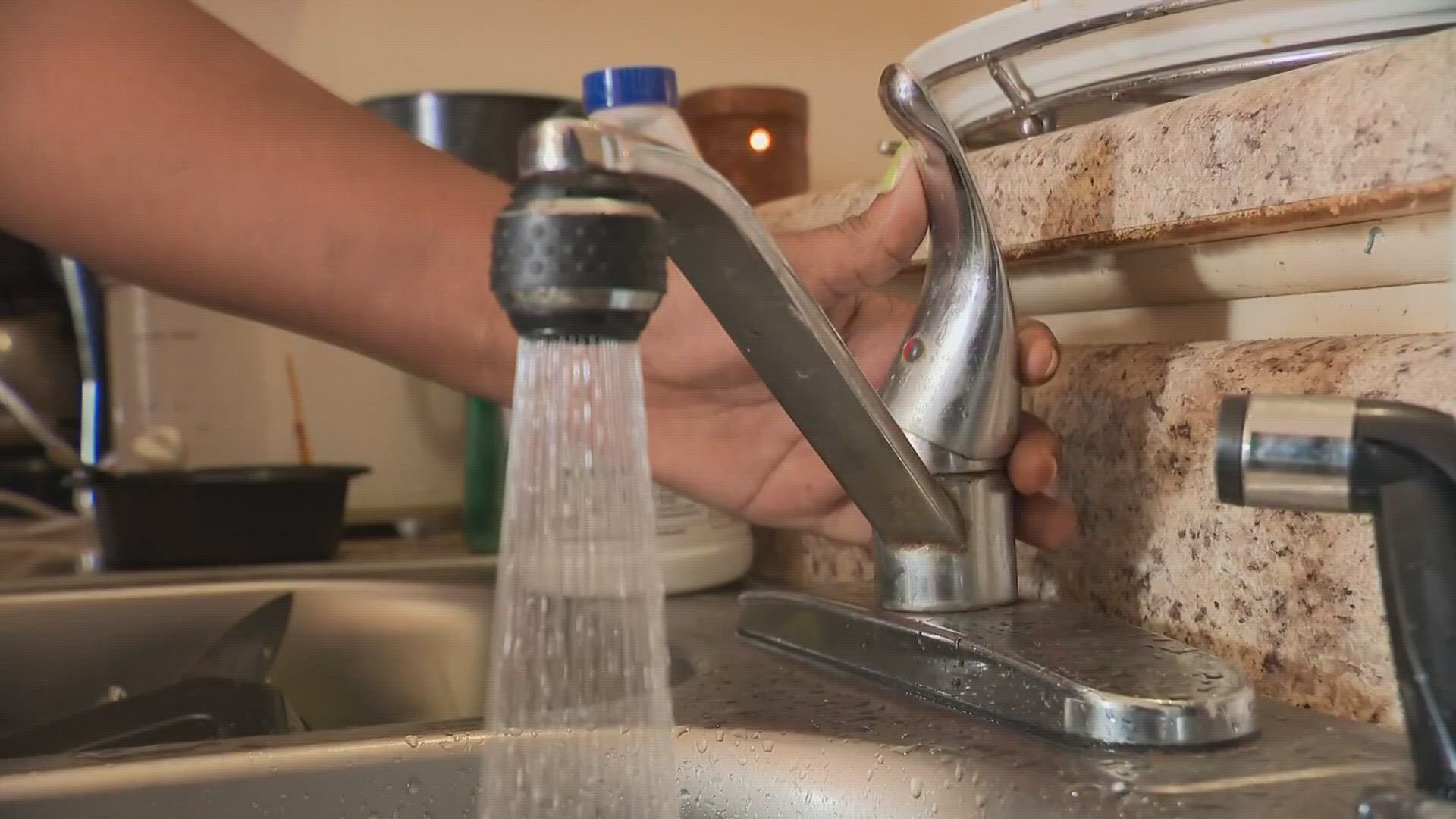PHOENIX — Arizona’s megadrought is about to soak Phoenix water users.
A planned rate hike by the city’s water services department would boost the average homeowner’s summertime bill by 42% in just 18 months.
With water deliveries from the Colorado River projected to continue declining, the city plans to impose a $4 a month charge on customers who don’t conserve water.
“It’s even more imperative that we start thinking about water use,” Troy Hayes, Phoenix water director, said in an interview Friday.
Hayes said the city’s declaration last summer of a Stage 1 water alert was the first signal to customers to take stock of their water use and find ways to lower it.
The proposed surcharge, he said, “sends a stronger signal to go out and make those changes now, before we get further down the road, where the department or the city potentially starts looking at ways to do that for them.”
But Hayes said residents can take steps to ease the impact of rate hikes.
“Water usage is under their control,” he said. “If they reduce the amount that they use, they can control their bill.”
Phoenix residents can get their first glimpse of the planned rate hike Monday, at the first of at least 15 planned meetings citywide.
The city council could vote on the proposal sometime in June.
Councilwoman Betty Guardado expressed concern at a committee meeting last month about residents’ ability to absorb the new water-rate structure.
"It's been very confusing for all of us up here,” she said of her council colleagues. “I can only imagine what it will be like for our residents."
Here’s what we know:
When would rates go up?
The water department is proposing three water rate hikes between October 2023 and March 2025: 6.5% in October, another 6.5% boost in March 2024, and a 13% hike in March 2025.
But there's more: the new $4 monthly surcharge for homeowners who don't conserve enough water to meet a proposed lower water allowance. Right now, most homeowners use more water than the proposed allowance.
What’s the water allowance?
Phoenix households pay a base fee according to a specific amount of water use - the water allowance. That allowance was set in 1990.
Here’s the good news: Phoenix households are using an average of about 30% less water per person than they did in 1990.
Now the allowance is being adjusted to reflect average water use today and the demands of conservation.
“This is the first time since then that the City of Phoenix has gone to do an analysis of adjusting it, to appropriately reflect what we think is happening,” Hayes said. “It really didn't send a signal of water usage and water conservation.
“What we hope is that by lowering the level, we’ll be exposing more of our water use to the variable components of our rates, it'll strengthen a stronger signal to our customers.”
What’s the impact on your bill?
Let's use as an example the average water bill for a single-family home during the higher-rate summer months - June through September.
The average summer bill (minus taxes) is $29.19 a month. (The average winter bill is $20.19.)
The average home uses more water than the planned new allowance, meaning they would get hit with the $4 monthly surcharge.
Bottom line: The average homeowner would see their summer water bill soar by 42% over 18 months, to $41.56 a month.
Homes that conserve enough water to avoid the surcharge would see their summer water bill jump 28% over 18 months.
How can homeowners avoid charge?
Hayes said a water department analysis showed two things: Most customers are overwatering their lawns, and more water is being lost to leaks in homes.
“Take this as a challenge to go and look at their water use,” he said. “Make sure on the outdoor use that they're only watering twice a week. That's really a more realistic guideline of where they should be watering.”
Using less water on lawns and plugging leaks, in toilets or pipes, Hayes said, could bring most homes’ water use in line with the new water allowance.
“We have tools on our website to go out and to be able to pinpoint if you have a leak,” Hayes said. Worn-out toilet flappers are a common source of leaks.
Why is the cost of water rising?
Hayes said what the city pays for raw water has soared 35% over the last five years.
But that’s not the only cost driving up your water bill.
The cost of labor, electricity and chemicals to treat the water are also climbing.
Pool owners can relate, he said. “You used to be able to buy the 35 pounds of chlorine for $98. And now it's $220. All that's happening to the utility.”
Where to get help with bills
Affordability will be an issue for many homeowners on low or fixed incomes. The city is directing them to this site.
Up to Speed
Catch up on the latest news and stories on the 12News YouTube channel. Subscribe today.


